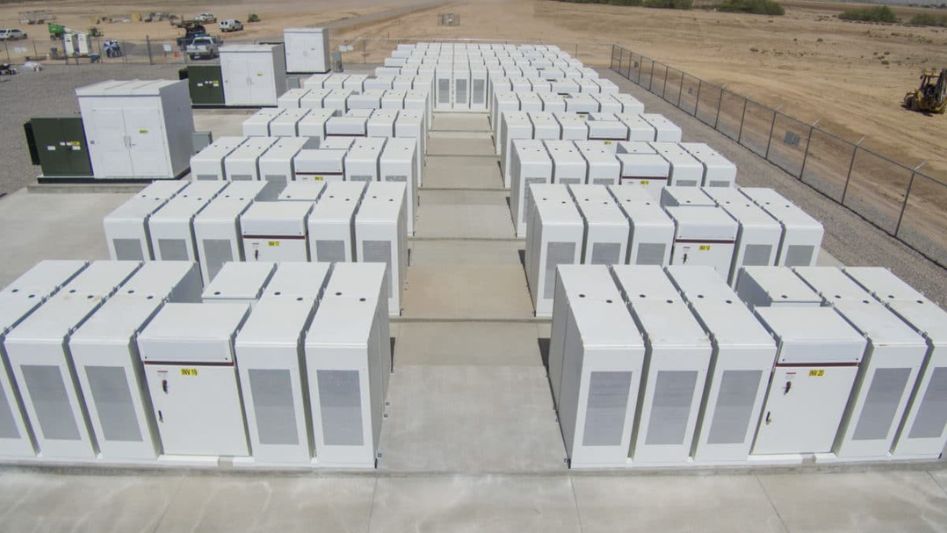Battery storage technology is crucial for the growth of renewable energy as it enables energy storage and improves system stability and efficiency.
Table Of Content
Introduction
Battery storage technology is a crucial component of the growth of renewable energy. It allows energy generated from sources such as solar and wind to be stored and used when the sun isn’t shining or the wind isn’t blowing. This helps to smooth out the fluctuations in energy supply that can occur with these intermittent sources, making them a more reliable and consistent source of energy.

Benefits of Battery Storage
One of the most significant benefits of battery storage is that it allows excess energy to be stored during periods of high production and then used during periods of low production. This helps to reduce the need for traditional fossil fuel-based power plants to act as a “backup” for renewable energy sources, which in turn helps to decrease the overall carbon footprint of the energy system.
Battery storage technology is also beneficial for the electricity grid as a whole. It helps to balance the supply and demand of electricity, which helps to improve the overall stability and reliability of the grid. This is particularly important as more and more renewable energy sources are added to the grid, as the fluctuation in energy supply can be more dramatic with these sources.
Another benefit of battery storage is that it can help to increase the overall efficiency of the energy system. When energy is stored in batteries, it is converted from a direct current (DC) to an alternating current (AC) through an inverter. This process loses some energy, but it is still more efficient than having to generate electricity from scratch when it is needed.
The growth of renewable energy sources is critical for the future of the planet, and battery storage technology is a crucial piece of the puzzle. It allows for the integration of renewable energy sources in the grid and make it more consistent, stable and reliable for the user.
Limitations of Battery Storage
It is important to notice that despite the many benefits of battery storage technology, it still have some limitations. There is still a cost associated with the development and deployment of battery storage systems, and it can be relatively expensive. Additionally, as the demand for battery storage increases, the availability and cost of the raw materials required to produce batteries, such as lithium and cobalt, may become an issue.

Future of Battery Storage
However, as technology advancements in materials and cost reduction efforts continue, the cost of battery storage is expected to decrease, making it a more viable option for a wider range of applications. Battery storage technology is an essential component of the renewable energy future and its continued development is crucial for the growth and success of renewable energy sources.
Conclusion
Battery storage technology is a crucial component in the growth of renewable energy sources as it allows for energy generated by intermittent sources such as solar and wind to be stored and used when needed. This helps to smooth out the fluctuations in energy supply that can occur with these sources making them more reliable and consistent. Additionally, it increases the overall stability and efficiency of the energy system and electricity grid, helping to decrease the overall carbon footprint. The development and deployment of battery storage systems are important to continue with to overcome the limitations and decrease the costs.

FAQ
How does battery storage technology work?
Battery storage technology converts excess energy from renewable sources into a form that can be stored and used later when needed.
What are the benefits of battery storage technology?
Battery storage helps to reduce the need for traditional fossil fuel-based power plants, balance the supply and demand of electricity, and increase the overall efficiency of the energy system.
How does battery storage technology help to integrate renewable energy sources in the grid?
Battery storage allows excess energy generated by intermittent sources such as solar and wind to be stored and used during periods of low production, reducing the need for fossil fuel-based power plants and smoothing out the fluctuations in energy supply.
Are there any limitations of battery storage technology?
Battery storage systems can be relatively expensive, and the availability and cost of the raw materials required to produce batteries, such as lithium and cobalt, may become an issue as demand increases.
Will the costs of battery storage decrease in the future?
As technology advancements in materials and cost reduction efforts continue, the cost of battery storage is expected to decrease making it more viable for a wider range of applications.
You May Also Like
- EV BATTERIES: THE SECRETS OF LIGHTER, LESS EXPENSIVE & MORE ENERGY DENSE BATTERIES
- CAN THIS METAL DO BETTER THAN LITHIUM BATTERIES?
- HERE ARE THE BATTERIES THAT COULD POWER THE FUTURE
- HOW TO MAKE EV BATTERY CHARGING MORE ACCESSIBLE IN CITIES
- SOLAR BOTANIC TREES: ARE THEY THE FUTURE OF EVS CHARGING STATIONS?
